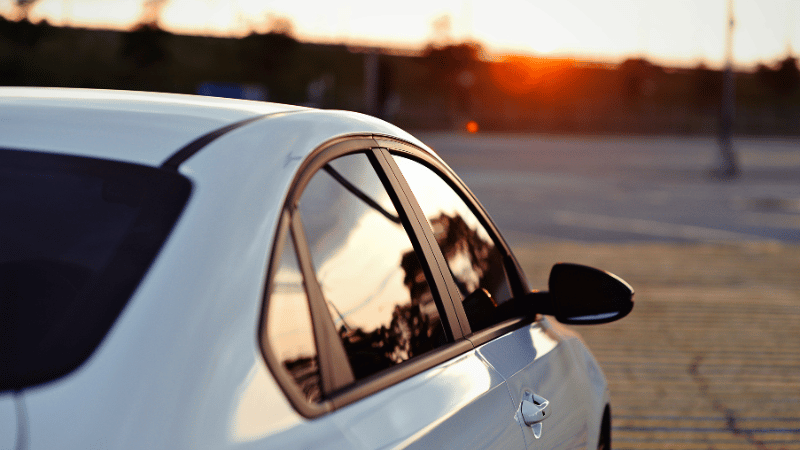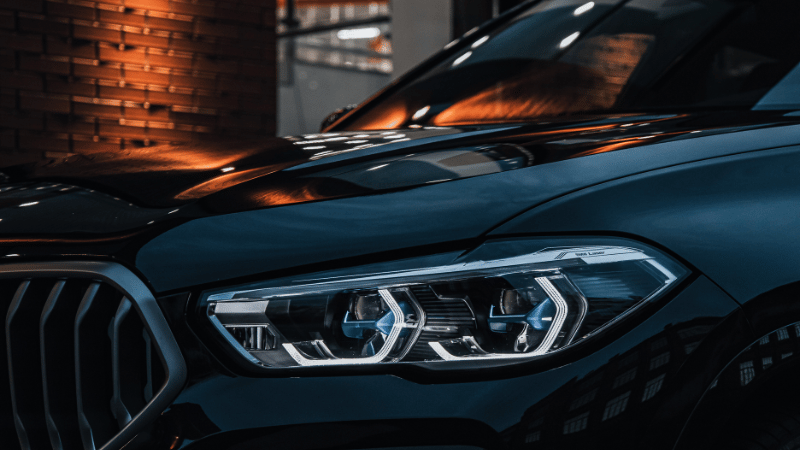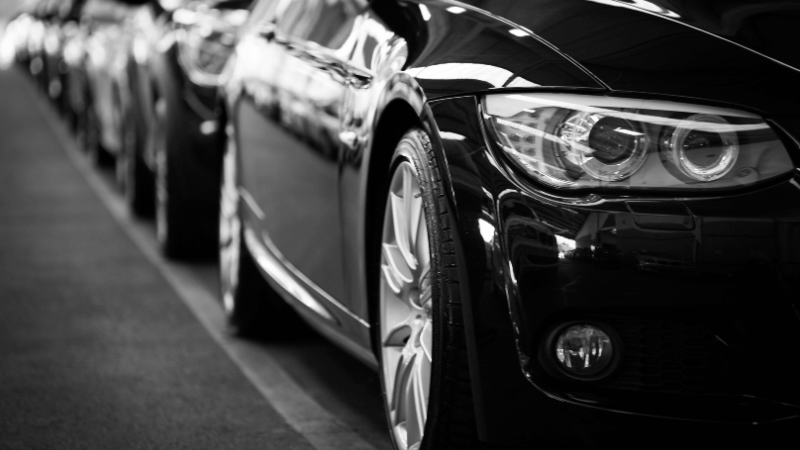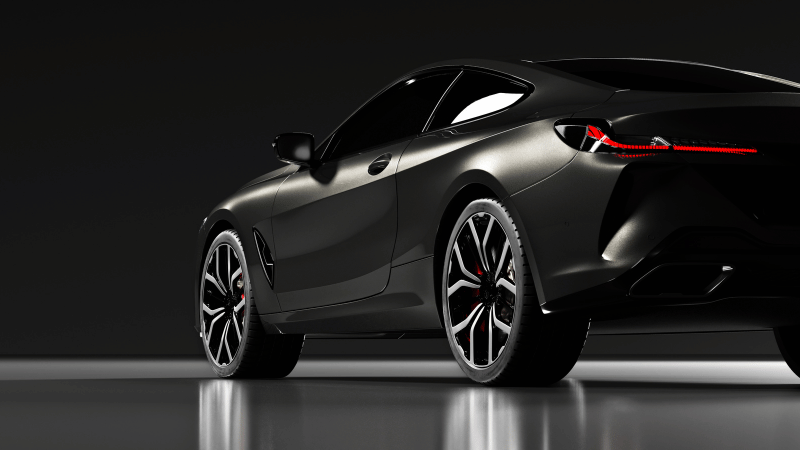Categories
How to Finance a Car | Affordability vs Ownership

At Clifton PF, we help clients arrange car finance independently every single day - we've seen it all. So join us as we dig deep, crunch some numbers, and compare the options to look at the best way to finance a car.
First, here's an initial overview:
Choosing the right car finance is best done by evaluating your personal circumstances and need. For us, the best way to finance a car is as follows:
- For prioritising owning a car outright - Hire Purchase
- For the best affordability - Personal Contract Purchase
- For getting the best car possible - Personal Contract Hire
- For if you have bad credit - Personal Contract Purchase
Read on to understand our reasoning in more detail, and for a quick quote on your best options from across the market, use our calculator below.
The Finance Options for Owning a Car Outright
Perhaps the greatest question when choosing your car finance is ‘do you want to own your car’?
Drop back a generation or two and the question would seem ridiculous - of course you want to own your car! - but in today’s society, the option to choose a long-term hire plan for your car is equally common.
So, the pros and cons for car ownership include:
PROS
- You end up with a car once your finance deal is complete, potentially for many years to come
- So you have an asset (the car) that you can sell on
- There are no limitations on use - take it Europe, or even further!
CONS
- Buying the car is more expensive
- You have total responsibility for repairs and maintenance (especially later on in the car’s life)
- There is administration and effort required if you want to sell the car
The main options for car ownership are:
- Hire Purchase (HP) / Conditional Sale (CS) - Essentially the same thing, hire purchase (or conditional sale) requires an upfront deposit and then a monthly payment over 2-5 years, after which time the car is yours.
- Personal Contract Purchase (PCP) Option to Buy - PCP comes with an option to buy at the end of the contract, where a final balloon payment can be made to secure the car. Lower monthly payments and flexibility make PCP a favoured option for many.
- Unsecured Personal Loan - A loan from a bank or other finance provider can be used to purchase a car outright.
- Credit Cards - Credit cards can be used for all or part of a car purchase, often offering limited zero-interest possibilities.
- Secured Loans - Loans secured on other assets, such as a remortgage option that releases equity from your home, can be used to buy a car, often at a favourable interest rate.

Evaluating the Choices for Owning a Car Outright
When it comes to buying the car outright, a lot does depend on your finances: initial capital, your monthly disposable income, and your credit rating all play a large part.
Initial Capital:
Whether you can put down a large deposit, therefore paying for a chunk of the car from the outset, makes a huge difference to the cost of your eventual monthly payments.
Both the size of the financing will be smaller, and the investment you will have made in the car will show that you are lower risk, making the interest rate lower.
Similarly, if you are only looking to finance part of the car, then credit cards or an unsecured loan can be all you need to make up the difference; however, you will probably get a better rate and generally easier time with hire purchase over these options.
Monthly Disposable Income:
Hire purchase is likely to cost more each month as you pay off the full value of the car. If you know you can afford this, then it could be the right option.
Being able to optionally shorten the term will help, meaning you will have less time making repayments, and will end up paying less in interest.
However, it’s important to understand the way PCP works, as if you are looking to buy the car outright, there will be a significant balloon payment at the end of the agreement to do so. Read more about PCP later.
Credit Rating:
There’s no getting around the risk assessment part of a car finance agreement and the better your credit rating is, the more options will be available to you.
Those with a good credit rating can choose any of the options and will benefit from lower interest rates. If your credit rating is not as high, then the secured options will be more likely to result in a successful application.
Both hire purchase and personal contract purchase leverage the car itself as security on the loan, meaning less pressure is put on your credit score.
Homeowners may want to look at a remortgage or even a second charge mortgage to provide a secured loan that can fund the car purchase as well as help in other areas, often with very competitive rates.
Owning the Car - The Best Options
Given all the thoughts above - which are the best options if car ownership is the main focus?

Hire purchase is a strong contender. It’s a simple structure that is designed with ownership in mind from the outset, spreading the cost of car ownership across the months.
The fact that it’s a secured loan using the car as a guarantee helps keep interest rates low and makes it a little more forgiving when it comes to credit ratings, and though a deposit is usually needed, there’s no worrying balloon payment to think about.

Personal contract purchase has many of the benefits of HP (including the security of the car), but does what it can to keep monthly costs low.
The flexibility of PCP is such that if the capital is available at the end of the arrangement you can choose to keep the car, but if not, there’s no obligation. The low payments and flexibility make this beloved by many car buyers today.

Unsecured loans, credit cards, and remortgage options all suffer from not being focused car finance, with a more general nature. This can make them harder to get and with less competitive rates. That said, each has its pros and cons when used to buy a car. Our in-depth guide to car finance offers a more comprehensive look at these options.
Options for Affordability
If ownership is not the greatest concern and what’s most important is how much the car is costing you, then the options need to be looked at with a different perspective.
The first question then has to be: new car or used car? It’s easy to assume that buying a used car is the most affordable - after all, the car costs less! - but an old banger that’s constantly draining your bank account to keep it on the road can actually end up being more costly than a new EV that has a comprehensive warranty if anything goes wrong.
There are a lot of variables to tweak to make a full comparison, but it’s enough to say that in our experience, you do have to balance monthly car payments against repair and fuel costs.
Let’s look at some of the options:
- Hire Purchase (HP) - If you’re looking at a new car, it’s very unlikely that HP is going to be the most affordable, however, hire purchase is a car finance option that’s suitable for used cars, making it still relevant to this list.
- Personal Contract Purchase (PCP) Option to Upgrade - The flexibility of PCP means that we can do away with the expensive balloon payment if at the end you choose to continue with the contract by upgrading to a new car. PCP is also an option for used cars, although they have to have a reasonable value (typically over £7,000).
- Personal Contract Hire (PCH) - Not yet mentioned in this breakdown is personal contract hire. This is a long-term rental agreement where you don’t own the car, but instead pay monthly to hire the car. One major advantage of PCH is the option for maintenance packages, meaning that the finance provider takes care of the car for you entirely. It adds to the monthly payment, but can cut right back on additional costs.
- Credit Cards - Using credit cards to purchase a car may seem unusual, but the flexibility of credit cards combined with the opportunity for 0% balance transfers means that, if well managed, credit cards be among the most affordable options.
- Remortgage - With lower interest rates and longer terms, using your home as collateral for car finance can be extremely affordable on a monthly basis.
- Unsecured Loans - It is unlikely that an unsecured loan will provide a better rate or affordability than a hire purchase agreement, which is its closest in terms of structure. For affordability purposes, it is rarely a good option.
Evaluating the Choices for Affordability
New Car or Used Car?
This is the first question that has to be solved. Obviously a new car is more expensive on paper, but what do you get for that money?
- The latest technology - Not to be sniffed at, the enjoyment of a new car is substantial. They are safer, more environmentally responsible, and an improved driving experience. However, these don’t help in terms of assessing affordability.
- Improved fuel usage - With hybrid and EV (electric vehicle) options available, the cost of fuel can be cut considerably with a new car. In some cases, fuel in a new car is less than half that of an older, wasteful car. A lot here will depend on the amount you drive, with larger savings to be made at greater mileage.
- Warranty - A comprehensive warranty takes a lot of the worry away regarding paying for a large number of potential repairs.
- Reliability - A new car is simply more reliable than a used one, and the cheaper and older a used car you buy, the more likely it is that you will face increasingly expensive maintenance bills. The savings made in repairs can be extremely significant.
- VED Savings - The cost of vehicle excise duty (road tax) is not particularly great, but it is still a factor. The first year of a car’s life, it is exempt from VED, and it is likely that the cost of road tax in the years to come is lower than similar older vehicles.
- Insurance - Insurance is calculated based on risk, and the right new cars can have much lower risk than older used ones with better safety systems and improved security. While it is not always true that insurance is cheaper with new cars (especially when taking EVs into account), it can be a positive factor for affordability.
There is a fine balancing act to calculate whether a used car is more affordable in both the long and short terms than a new car, but it is worth making those calculations where possible.
Understanding Depreciation
Depreciation is another key factor in determining affordability. Depreciation is the amount of value the car loses as you drive it, and is the main concern finance companies have when calculating the cost of car finance such as PCP (personal contract purchase) and PCH (personal contract hire).
Hire or Ownership
Both PCP (without the option to own) and PCH work on the basis that you are hiring the car and it will be returned at the end of the contract - often replaced with a new PCP or PCH deal.
This keeps monthly costs as low as possible (as described above, they are based on paying just for the depreciation), but means you will never own the car and have it to sell.
When monthly affordability is the primary concern, however, car ownership is secondary to keeping those costs down.
Maintenance Contract
PCH (and some PCP deals) may come with an additional maintenance contract. While this adds to the monthly costs and is rarely a good idea if affordability is key, it offers a peace of mind that ensures a totally worry-free driving experience.
Deposit / Initial Payment
In almost all cases, it’s possible to pay more upfront to lower the monthly cost; an excellent way to make car finance affordable.
However, in terms of comparison it doesn’t really favour one method over another - all car finance alternatives benefit when you pay more deposit.
Those options, such as hire purchase, that require a deposit may be considered less affordable, as you need to come up with the money in advance of getting the vehicle, but it’s worth noting that even in these situations the upfront cost can usually be negotiated: 0% deposit hire purchase schemes do exist.
Flexibility
The fixed monthly payments of car finance can be both inflexible but also reliable. It means that budgeting the same amount each month is easy to calculate, while also making it a priority even in stretched months.
Those looking for flexibility over the amount to pay each month may want to consider credit cards. It is possible to buy a car on one or more credit cards and utilise continued zero-percent balance transfer offers to manage the money and repayments such that the finance never generates any interest. Monthly repayments then can be smaller or larger based on your finances each month.
Doing this is not without risk, however, as a mistake in credit card management can result in large amounts of interest being added and has the potential for spiralling debt problems. It’s also important to consider fees (both from the dealership and when transferring credit card balances).

Affordability - The Best Options
What is the best option if affordability is of most importance?
Let’s look at a few options.
For illustration purposes, these comparisons have been done without any deposit or upfront payment, to show the monthly affordability only over a 36 month agreement.
Fuel and mileage of 1000 months is considered, and an average estimated repair bill including servicing, tyres, brakes, and additional repairs has been added by taking an estimate over three years and dividing it by 36 for a monthly cost.
Interest has been set at a realistic level based on the type of finance and the value of the vehicle.

Example One - New Car Valued at £30,000
Example 1: £30,000 New Car
|
Option |
Ownership |
Interest |
Finance |
Fuel |
Maintenance |
Total per Month |
|
PCH |
No |
7.5% |
£503 |
£120 |
£60 |
£683 |
|
PCP |
No |
7.5% |
£512 |
£120 |
£60 |
£692 |
|
HP |
Yes |
7.5% |
£930 |
£120 |
£60 |
£1110 |
|
Unsecured Loan |
Yes |
11% |
£984 |
£120 |
£60 |
£1164 |
|
Remortgage* |
Yes |
6% |
£253 |
£120 |
£60 |
£433 |
* A remortgage represents a longer loan, calculated as a 15 year term
It’s worth noting that PCP and PCH costs with no upfront payment result in similar figures.
In reality, a larger initial payment for PCP will lower the monthly costs compared to PCH due to the way interest is calculated, making PCP the cheaper option when a significant initial payment is made.

Example Two - Used Car Valued at £10,000
Example 2: £10,000 Used Car
|
Option |
Ownership |
Interest |
Finance |
Fuel |
Maintenance |
Total per Month |
|
PCP |
No |
9% |
£222 |
£150 |
£100 |
£472 |
|
HP |
Yes |
9% |
£317 |
£150 |
£100 |
£567 |
|
Unsecured Loan |
Yes |
12.5% |
£332 |
£150 |
£100 |
£582 |
|
Credit Cards* |
Yes |
0% |
£278 |
£150 |
£100 |
£528 |
* The credit card option at 0% represents a well-managed situation with regular balance transfers. The monthly repayment is also flexible, with the finance figure shown here an average over 36 months.
A used car valued at £10,000 still has plenty of life in it. Maintenance is relatively low and though the likely fuel consumption is greater than a brand new car, it is only a minor change. PCH is no longer an option as it is reserved for new (or nearly new) vehicles.

Example Three - Used Car Valued at £4,000
Example 3: £4,000 Used Car
|
Option |
Ownership |
Interest |
Finance |
Fuel |
Maintenance |
Total per Month |
|
HP |
Yes |
10% |
£129 |
£190 |
£145 |
£464 |
|
Unsecured Loan |
Yes |
12.5% |
£134 |
£190 |
£145 |
£469 |
|
Credit Cards* |
Yes |
0% |
£112 |
£190 |
£145 |
£447 |
* The credit card option at 0% represents a well-managed situation with regular balance transfers. The monthly repayment is also flexible, with the finance figure shown here an average over 36 months.
PCP is no longer a viable option for a used car of this age, leaving just the ownership options.
With smaller finance, the difference between interest rates becomes less impactful. However, the cost of running the vehicle (fuel and maintenance) increases to outstrip the monthly payments, making it the larger portion of the monthly outgoings.
Options for The Best Car
For some people, the biggest consideration is simply ‘how can I get the best car possible with the least worry and hassle’.
They’re looking for spending power and are likely to have some capital ready to invest in the vehicle and lower any monthly repayments.
Car ownership is less of a consideration, with minimising the total cost of the car the greatest secondary factor.
Options include:
- Personal Contract Purchase (PCP) - While the option to own is less relevant, PCP offers an upgrade path to a new vehicle every few years, satisfying the desire to drive the best car.
- Personal Contract Hire (PCH) - With the addition of worry-free maintenance contracts, PCH presents a top-end option.
Evaluating the Choices for The Best Car
We’ve looked into both PCP and PCH a lot in this article, and have seen that the monthly payments can be very similar - so what makes the difference? The answer is in the way they’re structured.
PCP is developed to be a flexible way to get a car, with the option of ownership a keystone in its design. You don’t have to make that choice, of course, aligning PCP close to PCH, but you can if you want.
PCH doesn’t have an option for ownership. Instead, its design is based on being as worry-free as possible. Rather than a finance option for buying a car, it’s a long-term hire arrangement, just like renting a car.
PCP is seen as being ‘your’ car, and thus ‘your’ responsibility (even though it’s technically owned by the finance company the whole time). PCH, though, is seen as being ‘their’ car and thus, ‘they’ take responsibility for it.
A full package PCH maintenance deal means that if there’s ever anything wrong with the car, you simply make a phone call (or update an online form) and someone comes with a replacement car, takes yours away, and brings it back when it’s all fixed up. Completely worry-free.
The Best Car - The Best Options
So, if you’re looking to get the best car driving experience possible and money is a secondary consideration, choose PCH with a full maintenance package.
If money is still a significant factor, and you want to drive the best car you can but still with an eye on the budget, then PCP will work out a small bit cheaper over time, especially if you pay a reasonable amount upfront. Plus, there’s that option to buy should you ever want to do so.
Options for Bad Credit
It can be hard to finance a car if your credit rating is less than perfect. Many people are looking for the right car finance option if they have poor credit.
As unsecured loans and credit cards have no security, if you have bad credit, they can be difficult to obtain, especially with the size needed for a car purchase.
PCH deals similarly are typically out of reach, with high credit values and a lack of equity paid into the vehicle.
However...
- Hire Purchase - Because it is asset-based finance secured on the vehicle, HP can present an balanced option for both you and the lender, though interest rates and deposits may be higher to counteract the perceived risk.
- Personal Contract Purchase - Similar to HP, PCP is a secured finance option that mitigates some risk for the lender. Again, interest rates and initial payments will be higher but lower monthly payments than HP make affordability stress tests easier to pass. PCP’s flexibility means that it can be extra useful for those with bad credit, as future financial stability may be unknown.
- Specialist Bad Credit Finance - Specialist lenders are able to offer specialist bad credit car finance that’s tailored to your specific circumstances. Speak to a specialist at Clifton Private Finance to find out more.
Evaluating the Choices for Bad Credit
Getting a hire purchase deal on a low value car may be possible, but as described above be careful not to fall into the trap of a false economy where the running costs become untenable. Older used cars will often need money put aside for early repair bills as you start to uncover the problems that were not noticed during an initial evaluation and test drive.
HP and PCP deals that are properly managed will help you build your credit rating, leading to better deals in the future.
Bad Credit - The Best Options
Monthly affordability is a huge factor when trying to rebuild your credit rating. It’s also important to try to avoid getting a used car that’s going to be more trouble than it’s worth. For these reasons our choice is clear.
How to Finance a Car - The Results
Choosing the right car finance is best done by evaluating your personal circumstances and need. For us, the best car finance available includes:
- For Owning a Car Outright - Hire Purchase
- For Affordability - Personal Contract Purchase
- For the Best Car - Personal Contract Hire
- For Bad Credit - Personal Contract Purchase
Car Finance Advice from Clifton Private Finance
The expert car finance team at Clifton Private Finance are here to help you choose the right finance for you when purchasing or leasing a car.
For comprehensive advice plus access to specialist car finance with the best rates, speak to us at Clifton Private Finance today.












